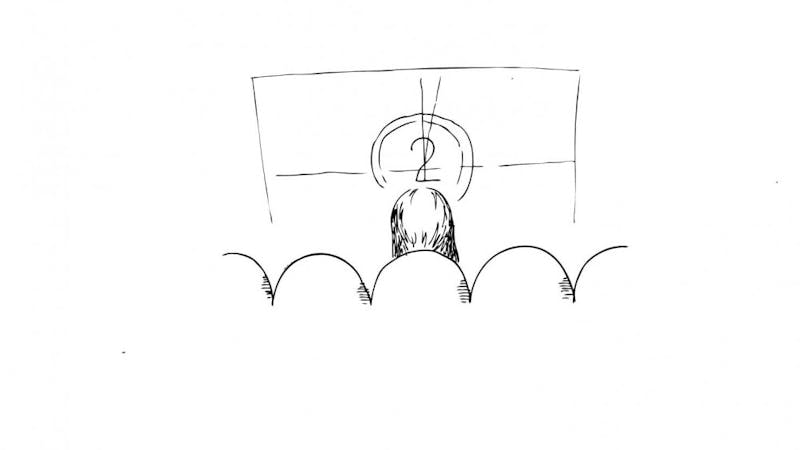NEWS
9/10/14 6:42am
By Kaylen Strench
As Sept. 11 approaches, I am forced to recall the day when the Twin Towers came down. I was six, walking in line in elementary school back to my classroom when I noticed a group of other children crowded around the slit in the TV studio door. I walked over and followed their collective gaze to the television in the corner, displaying what I recognized as a flaming airplane smashing into a building. When I think back on that moment, knowing the details of the event like I do now, I am filled with tremendous sadness. Yet, at the time, instead of bursting into tears of distress like the adults around me, all I recall feeling was mild indifference. ‘Another bad thing,’ I thought, my face blank.All I can attribute this reaction to, besides being young, was that I had spent every morning and many evenings watching CNN with my parents. Perhaps, I now think, the cascade of death, sadness and pain I witnessed in quick succession everyday had desensitized me to the point where experiencing real horror lost its shock value. And perhaps this is a colossal tragedy in itself.I am not attempting to say the world is an inherently more dangerous or violent place. In fact, Steven Pinker, a renowned professor at Harvard University, recently made a convincing case in his book The Better Angels of Our Nature the world is actually at its most peaceful point in human history. Rather, I am claiming the media, instead of informing us about the pain and suffering in the world in a comprehensive, humanistic way, is making us numb to it. The bombardment of disorganized and largely violent imagery overwhelms us everyday, until we cannot feel it the same way anymore. In a media market where ‘clicks’ and ‘views’ are fought over mercilessly, news services throw up and promote stories based on their ability to capture viewers’ attention, not to promote an accurate and comprehensive narrative of the world. News has become violent, fast and confrontational. Beheadings are advertised on the front pages of newspapers, morning news anchors describe cases of small children shooting their instructors and websites flash news of police brutalizing innocent youths. It’s not that these stories aren’t important — they certainly are. However, presented as quick, piecemeal flashes, often absent of explanations or significance (either because it’s not presented or we don’t read beyond the headlines), these clips and images cloud our conception of the world into a muddy, violent mess devoid of intelligent or empathetic reaction.To further explain this phenomena, juxtapose our current media with that of 100 years ago, when print dominated. At that time, news came once per day in the form of a carefully constructed newspaper. An editorial board sorted through the abundant news of the day, chose a “most important” story for the cover, and had time to write full, analysis-heavy stories about each event that readers, well, typically read. Today, in the era of the 24-hour news cycle, reporters want to be the first to get the story out, and so information is released in so many incomplete little parcels that viewers hardly know where to start reading. It is often convenient just to click through, only taking in headlines. Further, advertising profits are linked with those stories that get the most clicks — usually those which contain the most violent, disturbing or stupidly exciting titles or descriptions. While traditional print sources used to provide us with a censored, carefully delivered narrative to respond to, today’s news outlets often flood us with trash that we cannot possibly adequately sort out in order to appropriately respond to the events we’re reading about or to construct into a relatable narrative about the world. These features contribute to a collective conception of current events in which actual knowledge, emotion and content is low, and violence is consumed like porn with similar effect — the more we watch it, the more we’re numb to the emotional significance of the actual events.A few weeks ago, when I heard about the beheading of John Foley, was the first time in a long time I read a tragic story and just stopped to take it in. I sat down, paused my busy life and took the time to think about the pain and fear he and his family must have felt and how terrifying ISIS truly is. As odd as it sounds, it took this much effort to really feel something, to completely comprehend that this was not a blurb about a fantastical event in a faraway place; it is a real, horrific incident in my world, during the time when I’m alive. I do not believe I am alone in this, and that is the tragedy of the decentralized news cycle — we must not let it dehumanize us.


